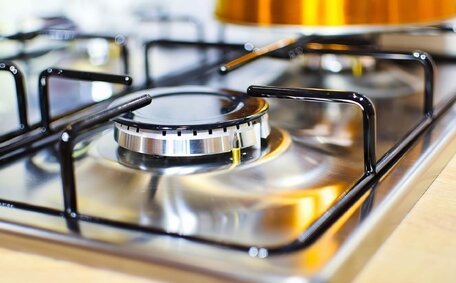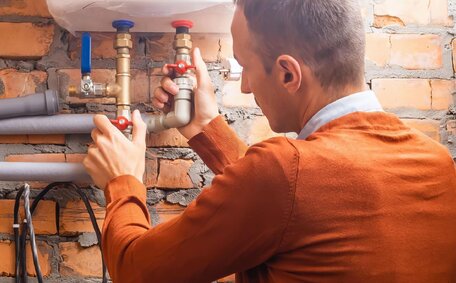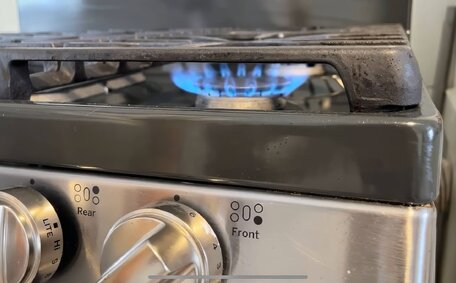Introduction: The Impact of Construction on Drain Health
Construction projects can significantly impact drain functionality. Materials like concrete, bricks, sand, and Other debris can result in blocked drains if they get into your drainage systems during construction. Accumulated debris can lead to blocked pipes over time.
Our team at Mascot Plumbing is well-versed in the relation between construction activities and blocked drains. With more than a decade of experience in Mascot and surrounding areas, our team is skilled in addressing the most common causes of drain blockages. We also provide tips to prevent construction waste from entering drains in the first place.
This guide provides solutions for construction-related drain blockages, along with preventative advice and troubleshooting tips.
Common Construction Materials that Cause Blockages
Some common construction materials that can cause blocked drains include:
- Bricks - Broken bricks or brick dust can accumulate in drains.
- Concrete - Remnants of concrete, grout, and similar mixtures are abrasive and can damage drains.
- Mortar - The sand and cement in mortar can solidify within pipes, leading to obstruction.
- Wood - Splinters, sawdust, and wood chips can enter drains during construction, leading to potential blockages.
- Paints - Oil-based paints and primers congeal inside pipes, which can clog up drains, something your home can do without.
- Pebbles/Stone - Loose pebbles may enter exposed drains during installation, potentially blocking drainage system passages.
How Debris Enters and Blocks Drainage Systems
Construction debris can find its way down into drainage systems through several avenues, resulting in blocked drains that can affect your home:
Bathtubs & Showers
For waterproofing bathtubs and showers, materials like tile grout, mortar, and concrete can disintegrate over time, leading to pipe blockages as adhesives deteriorate. These abrasive particles are washed down drain with bathing water, contributing to a gradual build up that may lead to blockages. Tree root infiltration can grow into cracks and joints, introducing root growths that are key factors in obstructing water flow.
Sinks
Similar to bathtubs and showers, kitchen sinks and bathroom basins also accumulate oil, grease, and debris. Food waste, grease fat, hair soap, and other organic matter make their way down the sink during typical use.
Toilets
When construction waste like cigarette butts, wood shavings, and paint tins is improperly placed down your toilet, these can cause clogs and major issues. These foreign objects, never meant to be flushed down toilet, find their way into your sewer lines, which can cause drain blockage in your system.
Outdoor Drains
Nearby construction sites often neglect proper debris containment, contributing to your blocked drain when loose materials are carried by water down your stormwater systems. Heavy rain and runoff carries loose materials, often leading to blocked stormwater drains and street drains. Leaves, dirt, and silt accumulating over time can wash into drains, causing blockages.
At Mascot Plumbing, our team’s expertise ensures that your water can move effortlessly through your pipes, minimising water heater issues and blockages. We offer advice to help prevent future clogs from debris. Reach out to your plumber at Mascot Plumbing today to learn more.
Preventing Construction Debris Blockages
Several effective strategies can prevent debris blockages during construction:
- Install temporary drain guards - Slotted metal guards ensure that large materials cannot intrude upon the pipes your home relies on.
- Set up proper waste sorting stations - Strategically placed bins for recycling different construction waste streams.
- Follow drainage plans - Install drainage pipes at the recommended slope of 1% to reduce blockage risks.
- Conduct regular drain inspections - Routinely check to ensure your drain can remain clear of accumulating debris.
- Hire professional plumbers - For complex drain layouts and installations, when comes to reducing debris-related risks, a licenced plumber is indispensable.
It’s also crucial to educate construction crews on proper building material disposal. It’s crucial that waste such as concrete, bricks, wood shavings are not placed down sink areas, which can cause blocked drain your property faces.
After works are completed, residual debris may still cause your drainage system to remain vulnerable over the long term. We recommend that you make sure to install drain mesh screens and maintaining vigilant drain cleaning routines.
An experienced plumber can map out drain locations to avoid collateral damage.
At Mascot Plumbing, we have an advanced understanding of construction-related drain hazards. When it comes to installations and repairs, our team follows strict processes to isolate waste material from entering pipes. Contact us today to learn more about keeping drains debris-free.
Clearing Existing Drain Blockages
If construction debris has already caused a drain blockage, here some methods to try clearing it:
Minor Blockages
For minor clogs in your toilet sink from substances like dirt, leaves, or pebbles, here are some home remedies you can try to tackle a blocked drain in your dwelling:
- Using a plunger - Plunge the drain 10-15 times to dislodge debris
- Trying a drain snake - You can use a small hand-crank snake to break up material
- Pouring hot water - The intense heat helps dissolve smaller blockages that may have settled inside pipes
- Applying a baking soda and vinegar solution - The reaction can generate sufficient force to break apart some debris types
Major Blockages
If DIY methods don’t work, larger debris like concrete requires professional intervention:
- Hydrojetting - Employs high water pressure to cleanse pipes thoroughly
- Mechanical drain cleaners - Spinning blades break up stubborn debris
- Drain eels - Flexible cables designed to reach deep into pipe systems
Our specialists use sophisticated equipment to clear drains of typical construction waste. We can also provide camera inspections to pinpoint problem areas. Contact Mascot Plumbing to schedule an appointment with our team of drain specialists today.
Maintaining Drainage Systems Post-Construction
Properly maintaining your plumbing system after construction is crucial for clearing blocked drains and to prevent blockages from debris accumulation over time. We provide strategies for thorough drain maintenance to protect your household after construction:
Regular Drain Inspections
Carry out monthly visual drain inspections to identify early signs of potential blockages. Look for signs blocked drain such as pooling water, foul odours, or slow drainage which may indicate a partial blockage. Regular inspections can prevent minor clogs from progressing into significant blockages.
Install Drain Screens
Install mesh covers on bathtub, sink outlets, and floor drains to protect your drains following construction. Mesh covers effectively capture common blockage culprits like hair, soap particles, and food scraps. Screens should be cleaned periodically to ensure your toilet water remains clear.
Hydrojetting Maintenance
Even with screens, a leaky faucet in your house, for instance, contributes to the buildup of silt, soap scum, and particles inside drains. Have professionals hydrojet your plumbing every 2-5 years to prevent debris accumulation and ensure clean pipes. Hydrojetting blasts away built-up gunk to keep water flowing freely through the pipes of your property.
Avoid Harsh Chemicals
Use gentler cleaning solutions to clear blockages instead of corrosive chemicals that can harm your pipes over time. Use milder enzyme or biological drain treatments instead for maintenance.
These simple, cost-effective maintenance measures can greatly reduce the risk of post-construction debris blockages. Contact Mascot Plumbing if you face any common plumbing problems; our team of experts can assist with drainage issues.
When to Call a Professional Plumber
While some minor drain clogs can be resolved with DIY methods, other scenarios call for the expertise of a professional plumber:
- Call a professional when home remedies fail, or if water backs up from sinks and tubs, indicating a deeper blockage that needs mechanical resolution.
- Persistent clogs - If debris-based blockages recur despite using screens and performing proper maintenance.
- Sewer line issues - Any suspected water leaks, burst pipes, cracks, or collapses in sewer pipes under foundations require specialised equipment.
- Multi-storey plumbing - Debris stuck far down main drainage lines necessitates high-pressure hydrojetting.
- Bathroom flooding - Water overflowing from shower/tub drains needs immediate attention to avert a full-blown plumbing emergency and possible property damage.
- Bad odours - Persistent foul smells from drains could signify serious problems such as pipe corrosion or dislodged connections.
Mascot Plumbing’s skilled team uses advanced tools to precisely tackle severe drain blockages. We own industrial-grade jetters enabling access across long drain lines. With over a decade of experience dealing with Mascot’s household and construction site blockages, we’re prepared for any situation.
For urgent drain unblocking to prevent soggy disasters, contact Mascot Plumbing at 1300 349 338. Our plumbing services are available around the clock, with skilled plumbers on hand to diagnose and solve any issue.






